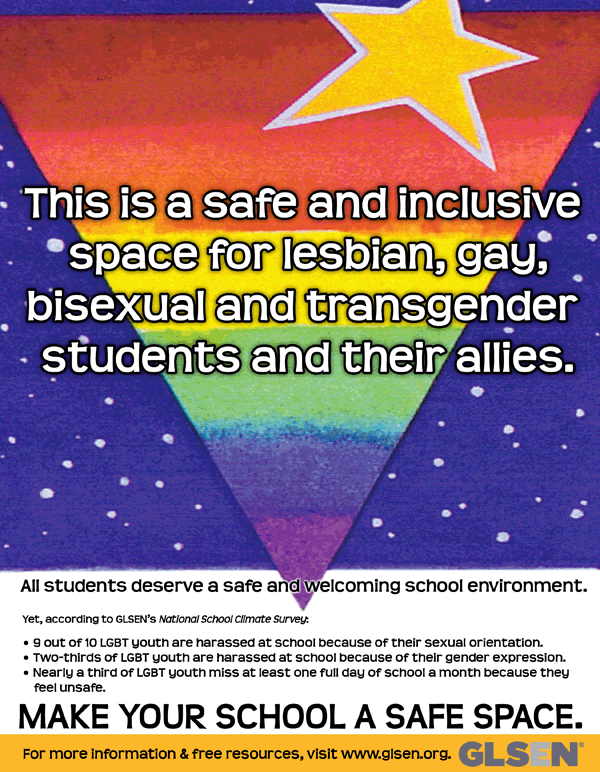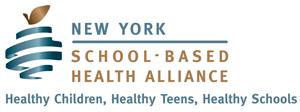
School-based health centers (SBHCs) are able to take specific steps to provide culturally competent care for lesbian, gay, bisexual, transgender, and queer (LGBTQ) youth, potentially impacting these students’ well-being. At the New York School-Based Health Alliance, we advocate for LGBTQ+ students and are committed to ensuring their equitable care. Below are important phone numbers, resources, and information for SBHCs and staff as well as for students and their families.
Get Help
If you or someone you know identifies as LGBTQ+ and is in need of help or someone to talk to, please text or call one of the numbers provided here, or visit their websites to learn more and find a local resource near you.
Trans Lifeline Hotline
1-877-565-8860
The Trevor Project Hotline
1-866-488-7386
National Runaway Safeline
1-800-786-2929
Resources for SBHCs and Staff
- Supporting Safe and Healthy Schools for LGBTQ Students: Published by GLSEN, this report provides insight into the work of school-based mental health professionals’ – counselors, psychologists, and social workers – to support LGBTQ youth, as well as barriers they face to supporting them.
- Supporting Black LGBTQ Youth Mental Health: A kit put together by the Trevor Project in light of protests surrounding Black Lives Matter.
- The Trevor Project’s Resources on Preventing Suicide: As a parent or educator, you can be a lifeguard for your children or students by understanding the warning signs and risk factors of suicide and letting the youth in your life know that support is always available if they need it.
- Cultural Competence Webinar Series: Quality Healthcare for Lesbian, Gay, Bisexual & Transgender People: This webinar series was created by GLMA Health Professionals Advancing LGBTQ Equality and explores the health concerns and healthcare needs of LGBTQ individuals.
- Creating Gender Inclusive Schools Film: Creating Gender Inclusive Schools is a concise and complete overview of how teachers can implement gender-inclusive practices.
- School-based Professional Development: “From an individual workshop on deepening understandings about gender, to applying this knowledge to your practice in our year-long intensive “training of trainers” Inclusive Schools Network, we offer a full range of trainings, consultations and resources for educators who are seeking help in creating gender inclusive schools. In all of our work, we honor the diversity of your community and pay particular attention to the specific needs of racial, ethnic and cultural communities.”
- Guidelines for the Primary and Gender-Affirming Care of Transgender and Gender Nonbinary People: Clinical care recommendations from the UCSF Transgender Care program. (2016)
- Affirmative Care for Transgender and Gender Non-Conforming People: Best Practices for Front-line Health Care Staff: Provided by the National LGBT Health Education Center.
- GLSEN Safe Space Kit: Designed to help you create a safe space for LGBTQ youth in schools, the Safe Space Kit is GLSEN’s Guide to Being an Ally to LGBTQ Students. The guide provides concrete strategies that will help you support LGBTQ students, educate about anti-LGBTQ bias and advocate for changes in your school.

Resources for Students
- Student and GSA Resources: GLSEN’s list of resources for LGBTQ+ students as well as ways to get involved in Gender and Sexuality Alliances (GSA).
- It Gets Better Project: lists of resources for LGBTQ+ youth across multiple identities as well as a collection of over 1100 organizations in 40+ countries around the world offering support to LGBTQ+ youth.
- PTSA Resources for Youth: Gender Spectrum in partnership with National PTA to provide resources for parents who are interested in learning more about gender.
- The Audre Lorde Project: The Audre Lorde Project is a Lesbian, Gay, Bisexual, Two Spirit, Trans and Gender Non-Conforming People of Color community organizing center, focusing on the New York City area, with resources specific to NYC.
- QCard Project: The Q Card is a simple and easy-to-use communication tool designed to empower LGBTQ youth to become actively engaged in their health, and to support the people who provide their care.
- Health Concerns for Gay and Lesbian Teens: Information for LGBT teens on sexual activity, substance use, mental health, discrimination, and violence.
- LGBTQ Student Resources & Support: Creating More Welcoming Environments for LGBTQ Teens and College Students
Resources for Parents/Caregivers
- Are You an Askable Parent?: AFY provides lesson plans, tips and strategies, background information, and additional resources to help youth-serving professionals create safe space for young people of all sexual orientations and gender identities.
- Family Acceptance Project: The Family Acceptance Project is a research, intervention, education, and policy initiative that works to prevent health and mental health risks for LGBT children and youth.
- PTA Resources for Parents and Caregivers: Gender Spectrum in partnership with National PTA to provide resources for parents who are interested in learning more about gender, children and youth.
- Coming Out: Information for Parents of LGBT Teens: It is important for parents of lesbian, gay, bisexual, and transgender (LGBT) teens to remember each child is unique and will have their own experiences and feelings along the way.
- Parents’ Influence on the Health of Lesbian, Gay, and Bisexual Teens: What Parents and Families Should Know: Information on how parents can promote positive health outcomes for their LGB teen.
Literature on SBHCs and LGBTQ+ Health
For a full database on published literature related to School-based health centers and LGBTQ+ Health visit the SBHC Literature Database built by the National School-Based Health Alliance. Below are some papers we believe highlight the important role of culturally competent and LGBTQ+ informed care in the health of LGBTQ+ students.
The Association Between Health Risk Behaviors and Sexual Orientation Among a School-based Sample of Adolescents
Objective: This study is one of the first to examine the association between sexual orientation and health risk behaviors among a representative, school-based sample of adolescents
Finding: GLB youth were more likely than their peers to have been victimized and threatened and to have been engaged in a variety of risk behaviors including suicidal ideation and attempts, multiple substance use, and sexual risk behaviors.
Providing Culturally Competent Care for LGBTQ Youth in School-Based Health Centers: A Needs Assessment to Guide Quality of Care Improvements
Objective: To conduct a needs assessment survey among a convenience sample of SBHC administrators and medical directors to assess climates and actions supportive of LGBTQ quality medical care.
Finding: Regional differences were detected: 46.2% of Southern SBHCs conducted any materials review compared to 91.3% in the West and all in the East and Midwest (w2, p < .001). In the last academic year, 45.5% conducted no medical provider trainings, and 54.5% conducted no general staff trainings on providing care for LGBTQ youth. On intake forms, 85.4% included preferred names, but only 23.5% included preferred pronoun. There are significant gaps in the extent to which SBHCs provide culturally competent care. These findings can guide future training and advocacy.
The Effect of Negative School Climate on Academic Outcomes for LGBT Youth and the Role of In-School Supports
Feasibility, Acceptability, and Initial Efficacy of an Online Sexual Health Promotion Program for LGBT Youth: The Queer Sex Ed Intervention
Objective: Lesbian, gay, bisexual, and transgender (LGBT) youth experience multiple sexual health inequities driven, in part, by deficits in parental and peer support, school-based sex education programs, and community services. Research suggests that the Internet may be an important resource in the development of sexual health among LGBT youth. This study examined the feasibility of recruiting youth in same-sex relationships into an online sexual health intervention, evaluated intervention acceptability, and obtained initial estimates of intervention efficacy.
Finding: Study findings suggest that the delivery of comprehensive sexual health education online is feasible. Enrollment statistics indicate a large number of individuals clicked on our ads to find out more about the study and that the most common reason for ineligibility was the requirement that participants be in a current same-sex relationship.
Emotional Distress Among LGBT Youth: The Influence of Perceived Discrimination Based on Sexual Orientation
Objective: The authors evaluated emotional distress among 9th–12th grade students, and examined whether the association between being lesbian, gay, bisexual, and/or transgendered (i.e., “LGBT”) and emotional distress was mediated by perceptions of having been treated badly or discriminated against because others thought they were gay or lesbian.
Finding: Mediation analyses showed that perceived discrimination accounted for increased depressive symptomatology among LGBT males and females, and accounted for an elevated risk of self-harm and suicidal ideation among LGBT males. Perceived discrimination is a likely contributor to emotional distress among LGBT youth.
